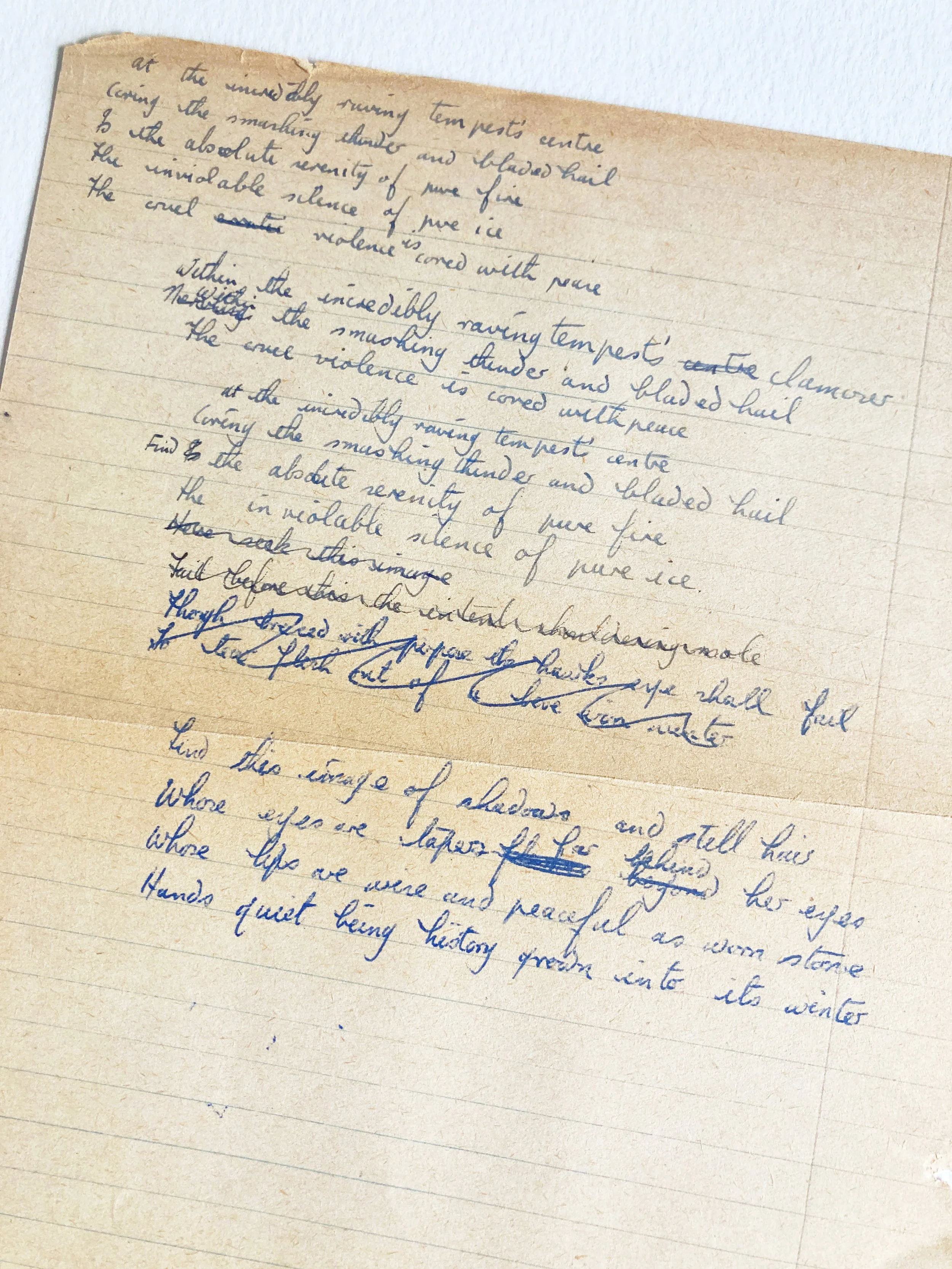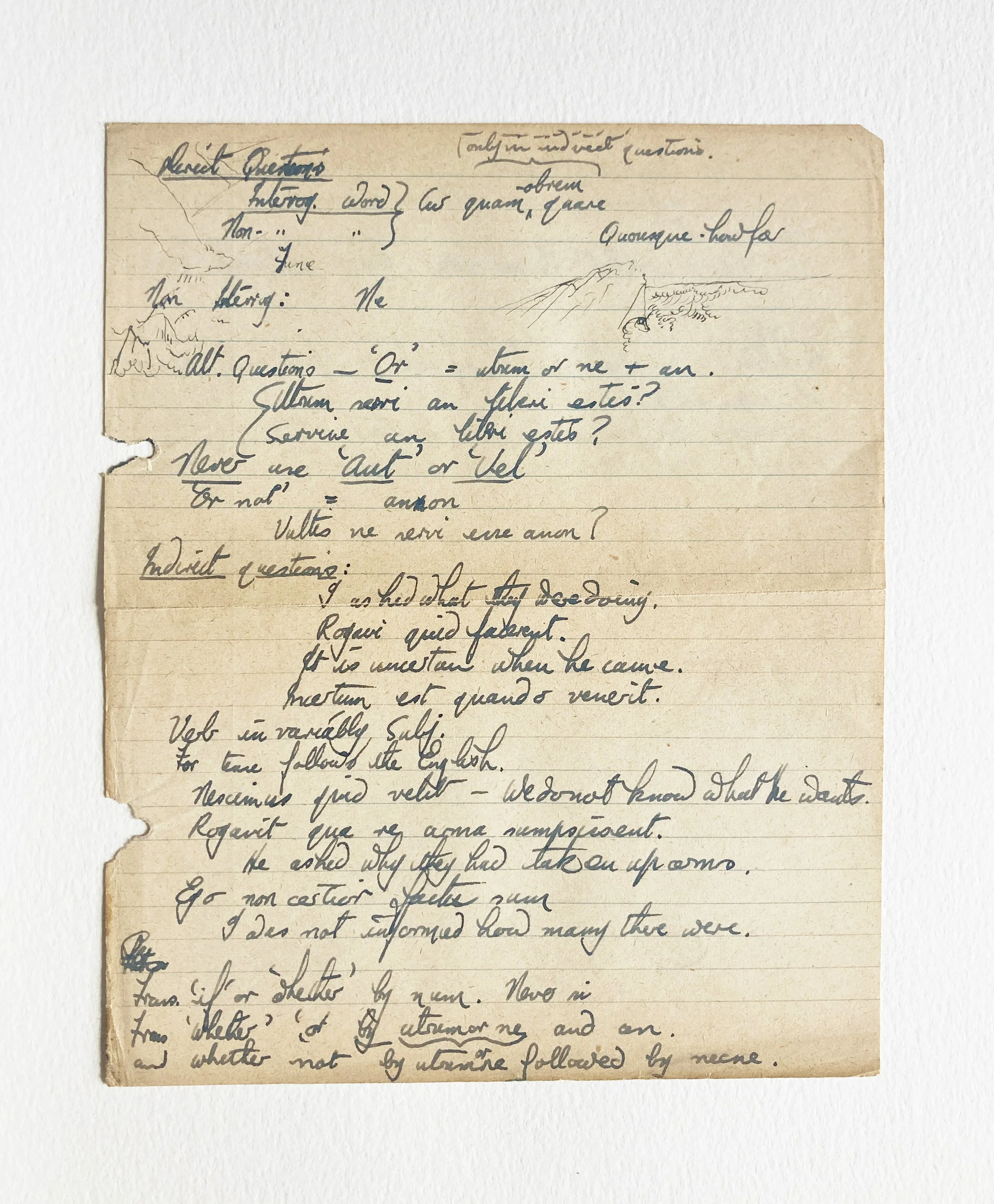A VERY EARLY TED HUGHES MANUSCRIPT, CIRCA 1946


A VERY EARLY TED HUGHES MANUSCRIPT, CIRCA 1946
HUGHES, Ted (1930–1998)
Two-page manuscript with numerous reworked stanzas and Latin notes
Yorkshire, c.1946
2 notebook leaves; 209 x 165mm [together with:] 1 hardback volume, 16mo; pp. xviii, 379
A profoundly important fragment of early poetry by Ted Hughes, likely dating from the end of his time at Mexborough Secondary School, circa 1946.
The first sheet bears six attempted stanzas, as well as some other abortive lines. The first three stanzas rehearse a thunderous scene, exploring the image of a peaceful centre. The source or context of this poem is unclear, though it may be related to Hughes’ early ‘Zeet Saga’, which is similar in tone. Amongst the other lines one couplet stands out, as it clearly presages Hughes’ burgeoning interest in the natural world – in animism and violence – and also his later poetic diction:
though braced with purpose the hawk’s eye shall fail
to tear flesh out of a hare [over?] winter
There is ambiguity over the exact wording of this fragment, as it has been crossed out – yet the significance is clear. Out of the bombast of his juvenile poetry Hughes, here aged about 16, has glimpsed a new way of writing, drawing directly on his experience of the natural world. Here is Jonathan Bate in his biography of Hughes:
At school, Ted was plagued with the idea that he had much better thoughts than he could ever get into words. He couldn’t find the words, or the thoughts were ‘too deep or too complicated for words’. How to capture those elusive, deep thoughts? He found the answer […] not in the classroom but when fishing. Keeping still, staring at the float for hours on end: in such forms of meditation, all distractions and nagging doubts disappear. In concentrating upon that tiny point, he found a kind of bliss. He then applied this art of mindfulness to the act of writing. The fish that took the bait were those very thoughts that he had previously been unable to get into words.
The other manuscript sheet is covered both sides with notes on Latin grammar, again in Hughes’ hand, and a useful guide to dating, as he is known to have studied for a Higher School Certificate in Latin from July 1946 to the summer of 1947. This sheet also bears two or three separate sketches of mountain scenes, likely depicting areas that Bate identified as particularly significant for Hughes: ‘childhood places such as Hardcastle Crags and the view from the moors above Mytholmroyd’.
The manuscript was found preserved inside Olwyn Hughes’ copy of Virgil’s Aeneid (Everyman’s Library edition), perhaps either borrowed by her brother Ted, or used as a repository for safekeeping of this precious manuscript.
Notebook paper browned, but generally very good; copy of The Aeneid very good, noting only a few ink splashes.
Provenance: Frieda Hughes; see Bonham’s, Fine Books and Manuscripts, 21 March 2018.
References: Bate, Ted Hughes: The Unauthorized Life, Chapter 3.

